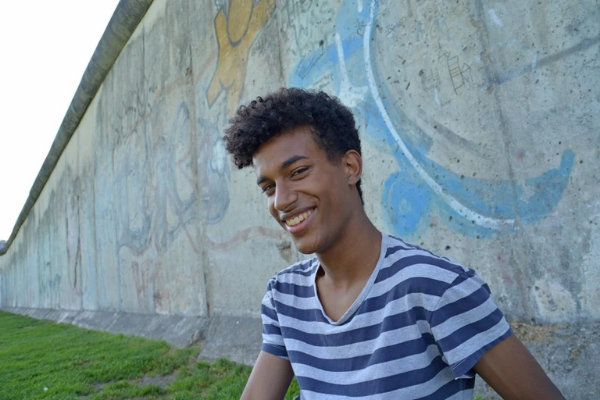Today marks the start of the long-awaited trial of 18 members of KU Leuven’s student fraternity Reuzegom, who allegedly killed a younger student in a brutal hazing ritual that went too far.
20-year-old engineering student Sanda Dia passed away on 7 December 2018 after a two-day hazing, where he was forced to drink fish oil and sit in an ice bath - among other things – as part of an initiation ceremony common with fraternities.
When it became clear the abuse had gone too far and he was in danger, his fellow students took him to the hospital, but only after making sure there was no evidence of their abuse. Days later, Dia passed away due to salt poisoning.
Three-year wait
The trial was expected to start in June last year but was adjourned upon the request from the lawyer of one of the members.
The wait for justice has been long-awaited given how Dia died over three years ago. A hearing was meant to take place in September 2020, two years after the incident, but was postponed.
In August last year, the court finally ruled that all 18 members who were linked to Dia’s hazing would face charges in the court.
However, the fatal hazing trial had been expected to start in June 2021, it was adjourned upon a request from the lawyer representing one of the members. The trial was also immediately adjourned in September 2021.
All eyes are on the long-awaited start of the trial, as it is one of Belgium’s most important lawsuits in years.

Sanda Dia. Credit: sandadia.be
New, shocking footage
On Thursday, leaked images of Dia’s last hours were distributed without his parents’ permission. The student’s father, Ousmane Dia, had never seen those images himself. “No one has asked my opinion. I find it outrageous that people claim the parents have given their consent.”
The lawyer representing Sanda Dia’s family, Sven Mary, confirms: “No permission has been given to distribute these images by me, nor by the relatives of Sanda Dia. The worst thing is that the people behind me are the biggest victims of these images.”
The first defendant and ex-president of Reuzegom, ‘Zaadje’ (J.J., 25), takes the floor. “I should have graduated a long time ago,” he starts his plea, hoping to arouse sympathy. “I still live at home, I have a room. I have a good girlfriend. It is very difficult. It is not easy to live with.”
“If that initiation had not taken place, Sanda would still be there,” says Zaadje. “Over the years, we have been blinded by the risks. The cold, the loss of any sense of time... That was a very severe ordeal. We never thought it could have such disastrous consequences.”
“We should have thought more carefully. That initiation was sacred to us, even if it’s ridiculous. It's super ridiculous.”
Related News
- Young man dies in student hazing in Namur
- Auctioning off new students during 'baptism' abolished in Leuven
- Fatal hazing trial begins, and immediately adjourns
Behind closed doors?
At the start of the hearing, one of the lawyers of the Reuzegommers asked if the trial would be held behind closed doors. “Nobody is really happy with the way certain things have come out,” said Joris Van Cauter, representing Reuzegommer S.P. (24), alias Remorke.
Lawyer, Walter Damen, agrees: “We have every confidence in the court, but not in how it will be presented to the public.”
After this, the session was adjourned as the judge considered a possible debate behind closed doors. An hour later, the session continued - the doors remained open.
The initiation was always the same, defendant Zaadje and a Reuzegommer lawyer, Lililanne Verjauw, defended themselves. “We performed blindly,” Zaadje said.
Verjauw states that fish oil had always a part of the initiation ritual. “Everyone involved in that knew that. The student club’s baptism script had been the same for years,” says Verjauw.
The incident
In 2018, Dia was a 20-year-old student at the University of Leuven (KULeuven). He took part in a hazing ritual to join student club Reuzegom, known as one of the university town’s “most exclusive clubs”. After drinking large amounts of alcohol and fish oil, and standing in a cold pool of water in December for an extended period of time, his situation deteriorated and was hospitalised.
Initially, the university imposed community service on the members involved in the hazing, almost all of whom have parents who are successful lawyers, magistrates, and medical professionals.
The case later received increased media attention and was taken to the Council Chamber, who decided to refer the case, and the 18 members of the now-disbanded club, to the criminal court in Hasselt.

